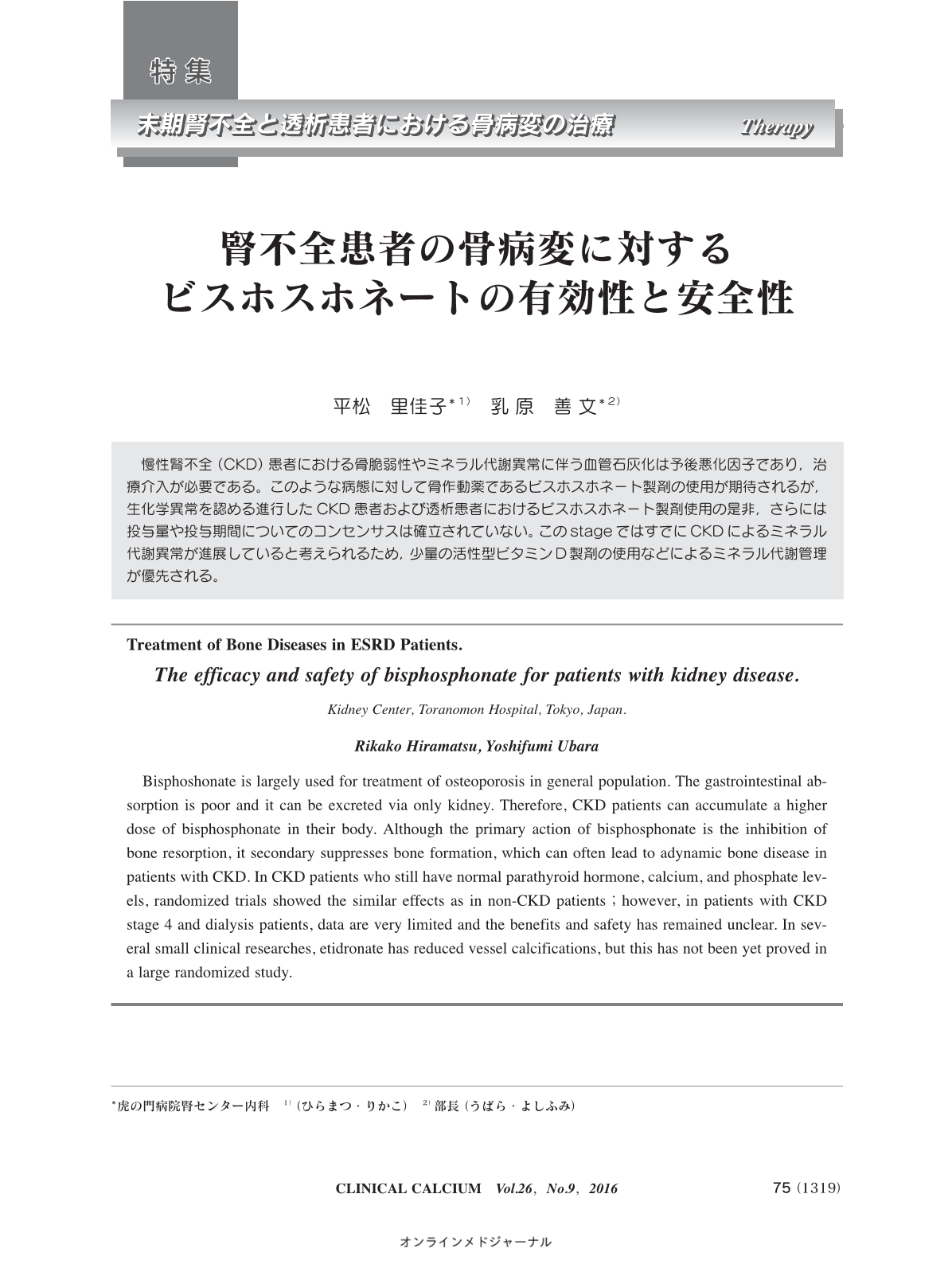Japanese
English
- 有料閲覧
- Abstract 文献概要
- 1ページ目 Look Inside
- 参考文献 Reference
慢性腎不全(CKD)患者における骨脆弱性やミネラル代謝異常に伴う血管石灰化は予後悪化因子であり,治療介入が必要である。このような病態に対して骨作動薬であるビスホスホネート製剤の使用が期待されるが,生化学異常を認める進行したCKD患者および透析患者におけるビスホスホネート製剤使用の是非,さらには投与量や投与期間についてのコンセンサスは確立されていない。このstageではすでにCKDによるミネラル代謝異常が進展していると考えられるため,少量の活性型ビタミンD製剤の使用などによるミネラル代謝管理が優先される。
Bisphoshonate is largely used for treatment of osteoporosis in general population. The gastrointestinal absorption is poor and it can be excreted via only kidney. Therefore, CKD patients can accumulate a higher dose of bisphosphonate in their body. Although the primary action of bisphosphonate is the inhibition of bone resorption, it secondary suppresses bone formation, which can often lead to adynamic bone disease in patients with CKD. In CKD patients who still have normal parathyroid hormone, calcium, and phosphate levels, randomized trials showed the similar effects as in non-CKD patients;however, in patients with CKD stage 4 and dialysis patients, data are very limited and the benefits and safety has remained unclear. In several small clinical researches, etidronate has reduced vessel calcifications, but this has not been yet proved in a large randomized study.



